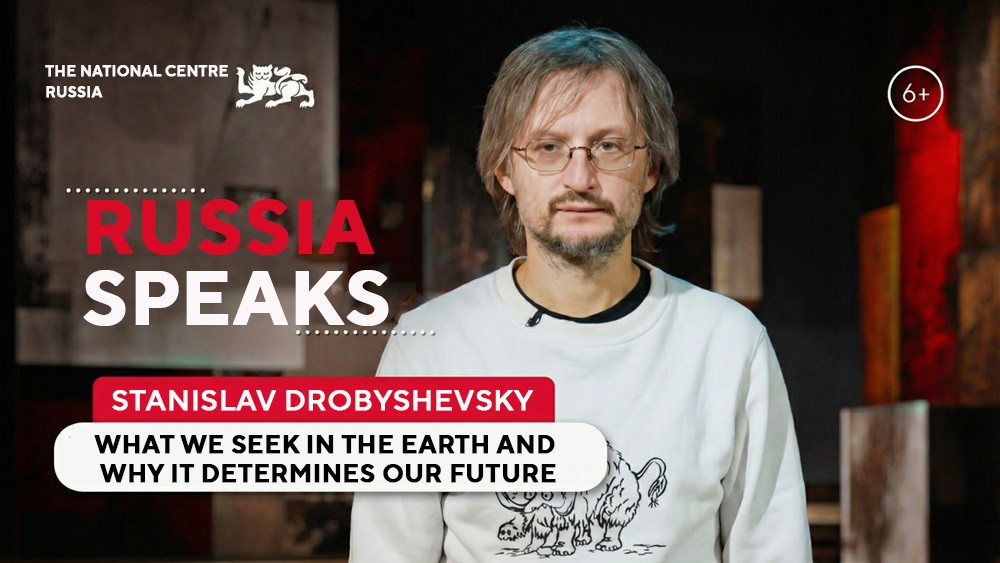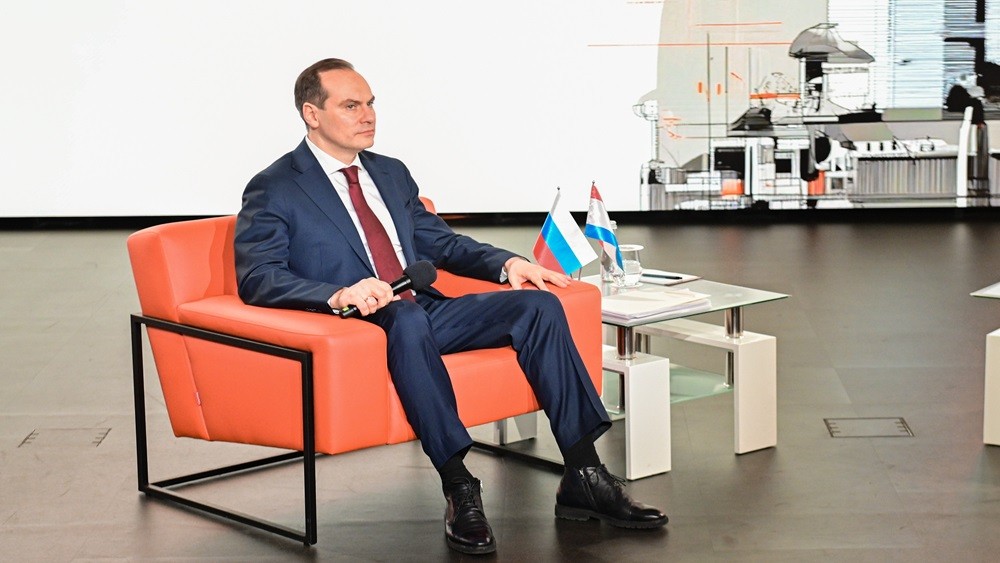Cutting off "oxygen" to extremism: measures to protect the elderly in the digital environment were discussed at the Exposition
On June 27, a public discussion was held on the topic "Online Space for the Senior Generation without Threats". Participants talked about the specifics of protecting senior citizens from cybercrime, shared their opinions on ways to ensure digital literacy and the role of IT giants in creating a safe environment for users of all ages.
The event was opened by Anton Nemkin, a member of the State Duma Committee on Information Policy, Information Technologies and Communications. He noted that the existing stereotype that the older generation does not use the Internet is wrong - according to statistics, 91% of citizens aged 55 to 64 and 87% of residents over 64 go online every day: "In addition to all the advantages that informatization and involvement in digital life of the older generation gives us, there are also negative aspects associated with all sorts of cyber threats waiting on the Internet: spam calls, scammers, phishing sites. Last year alone, about 670 thousand cybercrimes were recorded, and about 113 thousand victims were pensioners. Therefore, there is a clear demand for the need to improve digital literacy".
Statistics were also cited by Lyudmila Bogatyreva, Head of the Digital Solutions Department at the Polylog agency. According to her, elderly citizens tend to hide the facts of fraudulent transactions against them: "Among people aged 70-79, only 23% report the facts of fraud, compared to 43% in the category of 20-29 years old. That is, this category is in basic need of psychological support. That's the first thing. Secondly, the faster we receive information about the facts and methods of fraud, including in cyberspace, the more quickly the state and law enforcement agencies will be able to develop appropriate response measures. I would also like to draw attention to a rather interesting project, an application called "Protector". This is a mobile application through which a teenager, a child, can, at the touch of a button, report that they need help or support from adults. A similar story could also be extended to pensioners, who, by pressing such a button, could promptly inform the nearest relatives, neighbors, staff, if they are somewhere, that they really need help".
Next, the floor was taken by Yakov Petrosyan, leading specialist in legal support of the Centre for Legal Assistance to Citizens in the Digital Environment, who reported on the growing number of appeals on fraudulent actions: "If last year we had around 3200 applicants, then in less than six months of this year alone, more than 3500 applicants have already approached us. And 83% of these inquiries are related to fraudulent activities. Approximately 80% of these are specifically related to concluding credit agreements, loan agreements, and so on".
The topic of fraud was continued by Mikhail Bykovsky, Head of the Department for Interaction with Public Authorities of T-Bank. He noted that fraud often occurs not in an instant - attackers can work with a person who believes them for weeks: "And such a person <...> is not inclined to listen to anyone. That is, they really believe that this person who is in touch with them is protecting their money. All the others who are trying to save him, in fact, are enemies, they are just crooks. Such an inverted logic".
Anton Nemkin agreed with the expert, emphasizing that in such cases there is a question of improving the digital literacy of citizens and developing a simple and understandable methodology. After that, the deputy gave the floor to Andrei Ulyanov, Director of the Department for the Development of Services and Customer Experience at the Ministry of Digitalization of the Russian Federation. He complemented his colleague, pointing out that the built-in threat model in terms of security may not be enough: "Because even if dozens of, so to speak, security specialists will build a model, but the weakest link will remain the user. The user will simply click, respond, not respond, or do something else, and the whole model may collapse. That is why it is very important to hold such literacy classes".
Continuing his speech, Andrei Ulyanov said that pensioners are no longer the main category that is vulnerable to cybercrime. Today, the threat level is so high that everyone in Russia falls under it, warned the representative of the Ministry of Digitization: "No one is immune, and everyone needs digital hygiene. But the main advantage of educational programs is, of course, as I said, the creation of content for each target audience. This needs to be addressed and clearly understood. For example, we tell schoolchildren how to deal with cyberbullying. There are a lot of tools out there, including even pre-prepared sticker packs and everything else. We realize that this is a separate category, and attention is required here. For an adult audience, we can tell them how to create a strong password. For the older generation, we can tell them how to protect themselves from fraudsters. I emphasize that for each audience we choose a different platform for broadcasting this content".
The concept of digital literacy of the elderly population was described by Alexei Yakel, Associate Professor of Journalism Department of Donetsk State University, graduate of the New Media Workshop, who singled out two main directions of work: "This directly involves developing skills in information hygiene and the ability to verify information, authenticate sources, check facts, and so forth. The second focus area is mastering tools and services. Most programs designed today for older adults primarily emphasize this second direction, so to speak. As for the first direction, it is somewhat limited in the sense that issues related to countering information threats are often overlooked, with greater emphasis placed on various fraudulent schemes".
In turn, Anton Nemkin emphasized that in addition to preventive measures, the state has another tool to prevent such risks - legislative regulation: "And social networks are not a "no man's land" where you can do whatever you want. The state is obliged to protect its citizens, and there are no exceptions to this rule. Let me remind you that the State Duma of the Russian Federation is currently considering a bill to ban advertising on extremist social networks, which is designed to cut off the "oxygen" to those who spread fakes, lies and destructive behavior among the Russian audience. With this and a number of other measures, we can protect the audience, including the senior demographic, by reducing the distribution of content supported by extremist Meta*, as well as by transferring the audience to safer domestic platforms".
Artur Shlykov, founder and leader of the "Russian Civil Committee" movement, elaborated on the role of platforms. He noted that the Committee often encounters crimes against pensioners and veterans through foreign online platforms: "And there are plenty of well-known examples when old people, our trusting old people, become victims of calls allegedly made by special services, law enforcement agencies or banks. And it is not only fraud, but also direct instructions to commit illegal actions through certain manipulations".
In addition, Artur Shlykov reminded about the petition on blocking YouTube posted on the website of the Russian Public Initiative and moved on to the topic of developing Russian competitive solutions: "We understand that the positive side of creating cool competitive analogs, it that it can ensure the transition of the audience from dangerous foreign online platforms to domestic ones. Because on domestic sites our Russian legislation is in force. Accordingly, our pensioners can safely study and communicate there, being completely safe".
Vasily Maksimenko, editor-in-chief of LOOKY Media, shared the view of domestic platforms. He emphasized that at the moment an information war is being waged against Russia, including using YouTube. "At the same time, there is a significant decline in the audience of Western platforms: Instagram** has "sagged" six times in terms of audience figures, but it remains. It remains because there are still VPN services, there is still an opportunity for creators to place advertising. That is, creators, authors, to whom the audience subscribes, unwillingly continue to drive this process of drawing or leaving the audience in the field, where, I repeat, there is an information war".
Speaking about Russian analogs, Maksimenko noted that they continue to develop extremely quickly and put the main emphasis on audience safety: "All networks have large and powerful moderation teams, and in case the first level of defense has issues, there are people involved in solving certain ambiguous situations. I'll give the example of RUTUBE, again from a creator's point of view, when two years ago a huge number of stones flew at this platform, saying, why would I go there, what am I going to go there, when moderation takes three days there. No, guys, it is no longer three days, it is already three minutes, or two minutes. That is, colleagues are making just tremendous leaps, tremendous progress. And there is a feeling that the audience sees it, hears it, and feels it, because we already have a larger audience in Russia on our platforms than on Western ones. Speaking of LOOKY, we initially entered the market to replace Instagram**. Again, we feel that we have not just replaced it in terms of technical elements, we are starting to offer the audience various creative and imaginative moves with the help of our neural network, with the help of community building and working with this community. That is, we are constantly urging creators to treat the audience with care, to label content according to different age groups, and so on".
Next, the regional experience of creating a safe digital environment for elderly Russians was shared by Natalia Rogatina, Head of the Department of Social Services of the Ministry of Labor and Social Protection of Population of the Ryazan region. She emphasized that, in general, the state policy protects data that are in the contour of the authorities. However, assistance is also provided outside of it: "In particular, there are still such opportunities for pensioners and for citizens - through the MFC to apply for help to protect their rights and legitimate interests in connection with the processing of personal data in the digital environment. This became possible in the framework of joint work with the Centre for Legal Assistance to Citizens in the Digital Environment, created on the initiative of Roskomnadzor".
In turn, the Deputy Director of the SBI "Moscow Longevity" Anna Skorik told about the success of the capital: "Since 2018, we have had training. More than 500 thousand senior Muscovites have become our participants in the project, and in terms of digital literacy it is more than 200 thousand senior Muscovites".
Yegor Balev, a deputy of the Council of Deputies of the Naro-Fominsk district of Moscow region and a graduate of the New Media Workshop, also shared the results of the work on pensioners' appeals: "This is a vivid example of the fact that the regions that are already running such extensive projects to work with pensioners in the information environment can be used additionally with good intentions. We've boosted the social networks of grandmothers, they duplicate the right agenda, share how to do sports, they also cover the information security in the environment. And as a vivid example, one of them together with us drew the cover for Basta".
*Meta has been recognized as extremist and banned in the territory of the Russian Federation.
**The parent company Meta has been recognized as extremist
and banned in the territory of the Russian Federation.
A new episode of the original podcast "Russia Speaks" by the National Centre RUSSIA is dedicated to remarkable discoveries in anthropology.
Russian fairy tales come to life in colour, fabric and traditional crafts within the space of Department Store of the National Centre RUSSIA.
Unity of peoples is not only about holidays and festivals; its nature is far more complex and multifaceted, noted the Head of the Republic of Mordovia, Artyom Zdunov.



